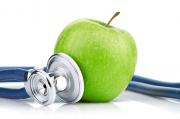Helping your body after surgery

Good nutrition can help to boost your immune system No matter how big or small, surgery can always have a significant impact on your health.
The way you look after your body after surgery can be just as important as the procedure itself. It can also make a big difference to the success of the healing process.
Surgery takes a big toll on the body. Speedy and effective post-surgery recovery requires catering to its special nutritional needs while it is still in a relatively weakened state and during a period when it is most susceptible to post-operative infections. Proper nutrition can help to boost your immune system so that it can resist those threats.
Below are a few simple dietary tips that can help you recuperate speedily after your surgery.
Eat Light, Eat Often
Eating more frequently means your meals will be lighter. Heavy meals can be hard for your body’s digestive system after a surgical procedure and they may even divert valuable energy from the healing process.
Antioxidants For Post-Surgical Pain and Swelling
Fruits and vegetables, especially berries and leafy greens, contain high levels of antioxidants. Try to get your antioxidants directly from food rather than supplements. Turmeric is a potent antioxidant too because of its natural anti-inflammatory and antibiotic properties.
Learn to Embrace Healthy Fats
The popular belief that natural saturated fats are unhealthy for the body is untrue. The body creates fat to protect it’s vital inner organs by storing toxins away from them. Healthy cell membranes consist of 50% saturated fat. The cells in some organs, like the lungs, require 100% saturated fats to function properly. It is the man-made fats in hydrogenated and vegetable oils that can cause health problems. Fats of all types that have been heated to high temperatures – like those in deep-fried food – can give rise to many illnesses too. The easiest source of healthy fats is omega-3 fatty acids. They can be found in fish oil and they can also be ingested in capsule form. To ensure the fish oil’s slightly anticoagulant effect does not adversely affect your body’s normal blood-clotting mechanism, it is best to wait three days after surgery before you start taking it. Walnuts and pumpkin seeds are other sources of omega-3 fatty acids.
Seven Macro-Minerals to Incorporate Into Your Daily Diet
Minerals are like the building blocks of health for your body. Though only essential in small amounts, their absence may result in many disease conditions. Here are seven important Macro-Minerals your body requires every day.
- Calcium (sesame seeds, broccoli)
- Chloride (sea salt)
- Magnesium (dark chocolate, almonds)
- Phosphorus (meats, eggs)
- Potassium (bananas)
- Sodium (sea salt)
- Sulfur (garlic, lemon)
Not All Water Is the Same
You probably already know how important water is for the body’s health. What some people don’t realise is that not all water is good for it. Filtered water containing natural minerals is the best. Distilled water lacks those minerals and it can actually take away from the body what it already possesses. Artificially adding minerals to the water does not help the leaching effect either.
Bear these five healthy eating habits in mind and you’ll be well on your way to a faster and less-painful post-surgical recovery. Once you are used to them, it’s a good idea to incorporate them into your everyday lifestyle post recovery too.
For more information, please call 0800 023 2592 or apply for our free email consultation by filling in the Medical Questionnaire and sending us the photos: http://www.beautyinprague.com/…estionnaire/

